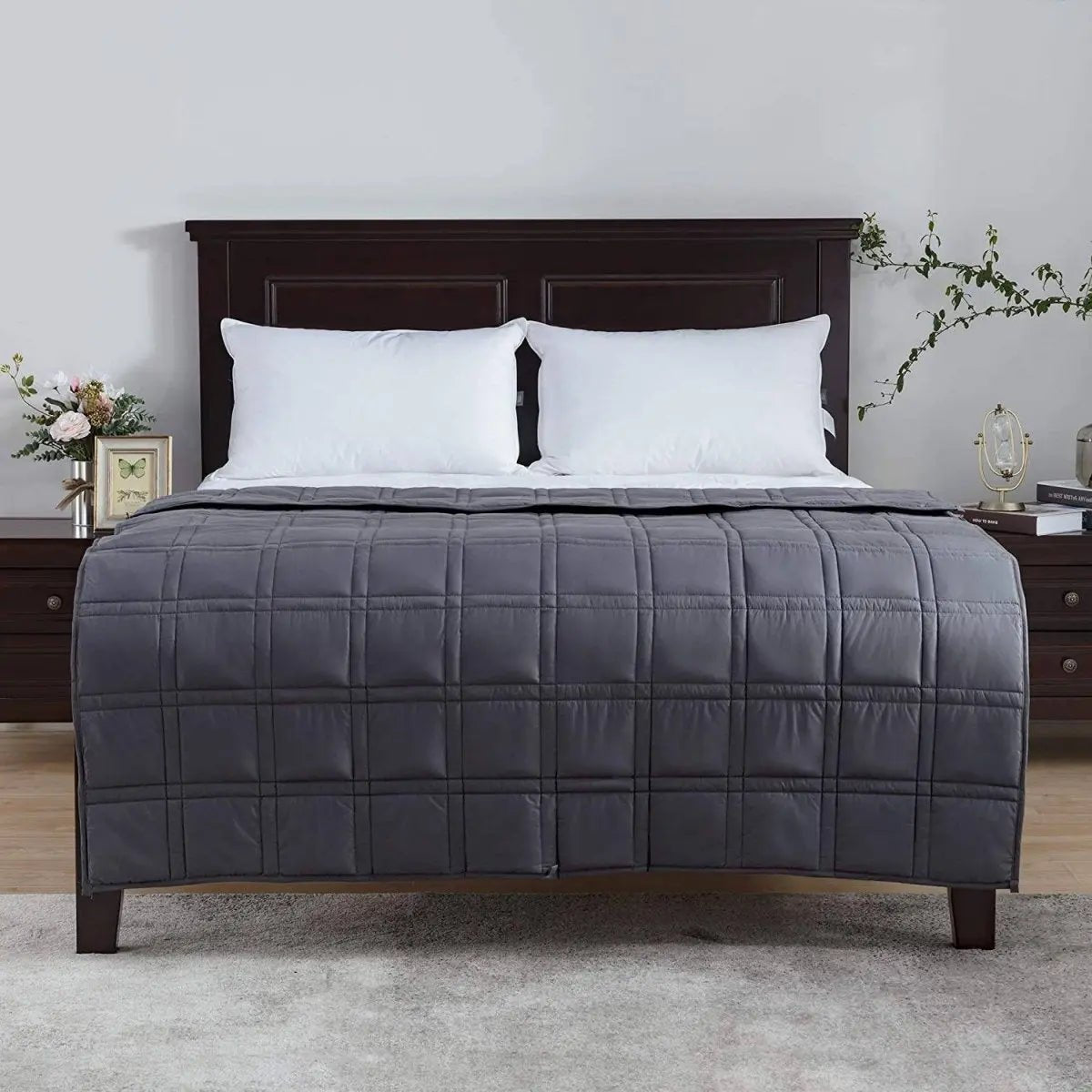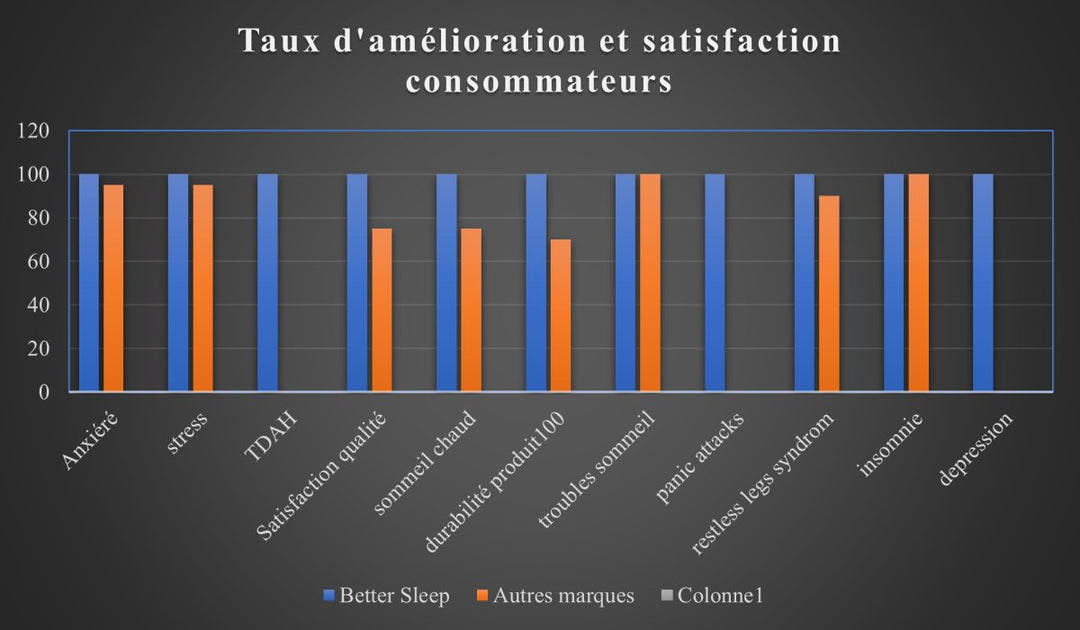What does it mean to be Oeko-Tex certified ?
Introduction To Oeko-Tex Certification: Understanding The Standard For Sustainable Textiles
In today's world, where environmental concerns are gaining increasing importance, consumers are becoming more conscious of the impact their choices have on the planet. This shift towards sustainability has extended beyond just food and energy consumption to encompass all aspects of life, including the clothes we wear. As a result, certifications such as Oeko-Tex have emerged to help consumers make informed decisions about their textile purchases.

Oeko-Tex certification is a globally recognized standard that ensures textiles are free from harmful substances and produced in an environmentally friendly manner. This certification encompasses all stages of textile production, from raw materials to finished products. It takes into account factors such as chemical usage, water and energy consumption, and waste management.
Understanding what it means to be Oeko-Tex certified is vital for both consumers and industry professionals alike. For consumers, this certification provides assurance that the textiles they purchase have been manufactured in a sustainable manner and do not pose any health risks due to harmful substances. Industry professionals benefit from this certification as it helps them showcase their commitment to sustainability while also providing them with guidelines for responsible production practices.
In this article, we will delve deeper into the Oeko-Tex certification process, exploring its significance in promoting sustainable textiles and ensuring consumer safety.
The Importance Of Oeko-Tex Certification In The Textile Industry
Oeko-Tex certification holds immense significance in the textile industry, ensuring that textile products are safe, sustainable, and free from harmful substances. This certification is a globally recognized standard that guarantees consumers and businesses alike that the textiles they purchase meet stringent environmental and social criteria.
Firstly, Oeko-Tex certification ensures the safety of textile products by setting limits for hazardous chemicals such as heavy metals, formaldehyde, or pesticides. By eliminating these harmful substances from textiles, it protects both consumers' health and the environment.
Secondly, obtaining Oeko-Tex certification demonstrates a commitment to sustainability. It verifies that manufacturers adhere to strict guidelines regarding resource consumption, waste management practices, and carbon emissions reduction. This helps minimize the ecological footprint of textile production processes. Moreover, Oeko-Tex certification establishes transparency in supply chains by requiring companies to disclose information about their suppliers and manufacturing practices.
This ensures accountability throughout the entire production cycle and promotes ethical business practices. Lastly, this certification builds trust between businesses and consumers. When customers see the Oeko-Tex label on a product, they can be confident that it has undergone rigorous testing for harmful substances and meets high-quality standards.
Decoding The Oeko-Tex Standard 100: A Comprehensive Overview
The Oeko-Tex Standard 100 certification is a globally recognized label that ensures textile products are free from harmful substances and safe for human use. It provides consumers with confidence in the safety and sustainability of their purchases. This comprehensive overview aims to shed light on what it truly means to be Oeko-Tex certified. To obtain Oeko-Tex certification, textiles undergo rigorous testing conducted by independent laboratories.

The tests cover a wide range of criteria, including restricted substances, colorfastness, pH value, and skin-friendliness. Only products that meet the strict requirements of all test parameters receive the coveted certification. The certification process considers each component of a textile product individually, including threads, buttons, and zippers. It also takes into account various production stages such as dyeing and finishing processes.
This holistic approach ensures that every aspect of the product is evaluated for its compliance with safety standards. Oeko-Tex Standard 100 focuses not only on human health but also on environmental protection. Manufacturers must demonstrate environmentally friendly practices throughout their supply chain and adhere to stringent ecological criteria. By choosing Oeko-Tex certified products, consumers can be confident that they are making a sustainable choice while safeguarding their health.
Ensuring Chemical-Free Textiles: How Oeko-Tex Certification Works
This certification verifies that textiles have undergone rigorous testing and meet strict criteria regarding their chemical composition.
To obtain Oeko-Tex certification, textile manufacturers must submit their products to independent laboratories for comprehensive testing. These tests evaluate the presence of various substances such as heavy metals, harmful dyes, pesticides, and formaldehyde. The certification also takes into account the pH value and colorfastness of the textiles.
The testing process follows standardized methods developed by Oeko-Tex to guarantee consistency across different laboratories. If a product passes all required tests and meets the specified limits for each substance, it is granted Oeko-Tex certification.
Furthermore, this certification is not a one-time process but requires annual renewal. Manufacturers must undergo regular inspections and retesting to maintain their certified status.
By choosing Oeko-Tex certified textiles, consumers can be confident in purchasing products that have been thoroughly tested for harmful substances. This certification promotes sustainable production practices and ensures healthier choices for both individuals and the environment.
The Role Of Ecological Textile Production In Oeko-Tex Certification
The role of ecological textile production in Oeko-Tex certification is pivotal in ensuring the sustainability and safety of textiles.
Ecological textile production plays a crucial role in meeting the stringent requirements set by Oeko-Tex. It involves adopting sustainable practices throughout the entire textile supply chain, from raw material sourcing to manufacturing and finishing processes. This includes using organic or recycled fibers, minimizing water and energy consumption, reducing waste generation, and implementing strict quality control measures.
 By adhering to ecological textile production practices, manufacturers contribute to the protection of ecosystems, as well as the health and safety of both consumers and workers. The absence of harmful substances such as heavy metals, formaldehyde, or allergenic dyes ensures that textiles are safe for human contact.
By adhering to ecological textile production practices, manufacturers contribute to the protection of ecosystems, as well as the health and safety of both consumers and workers. The absence of harmful substances such as heavy metals, formaldehyde, or allergenic dyes ensures that textiles are safe for human contact.
Furthermore, ecological textile production supports the circular economy by promoting recycling initiatives and reducing environmental impact. It encourages responsible sourcing practices that prioritize renewable resources and minimize carbon emissions.
In summary, ecological textile production is fundamental to achieving Oeko-Tex certification as it safeguards both environmental sustainability and consumer well-being through responsible manufacturing practices.
Eco-Friendly Manufacturing Processes: A Key Component Of Oeko-Tex Certification
As part of this certification, eco-friendly manufacturing processes play a vital role in promoting sustainable practices within the textile industry.
To achieve Oeko-Tex certification, manufacturers must meet strict criteria regarding their production methods. This includes using environmentally friendly technologies and materials that minimize the impact on ecosystems and human health. These processes aim to reduce water and energy consumption, limit greenhouse gas emissions, and prevent the use of harmful chemicals throughout the production cycle.
One crucial aspect of eco-friendly manufacturing in Oeko-Tex certified facilities is responsible waste management. Manufacturers are required to implement efficient recycling systems to minimize waste generation and maximize resource utilization. By doing so, they contribute to reducing landfill waste, conserving natural resources, and preserving ecological balance.
Furthermore, eco-friendly manufacturing processes also prioritize worker safety by ensuring proper ventilation systems, adequate protective equipment, and safe handling practices for chemicals used during production.
In summary, eco-friendly manufacturing is an integral part of Oeko-Tex certification as it helps promote sustainable practices within the textile industry. By adhering to these standards, manufacturers contribute significantly to environmental preservation while safeguarding both consumer health and worker well-being.
Demystifying Sustainable Textiles: Exploring The Benefits Of Oeko-Tex Certified Products
In today's world, where consumers are increasingly conscious about the environmental and social impact of their purchases, Oeko-Tex certification has emerged as a reliable indicator of sustainable textiles. But what does it really mean to be Oeko-Tex certified? Oeko-Tex is an independent organization that sets strict standards for textile production and certifies products that meet these criteria. The certification ensures that no harmful substances are present in the final product, making it safe for both human health and the environment.

This includes substances such as heavy metals, formaldehyde, pesticides, and allergenic dyes. By choosing Oeko-Tex certified products, consumers can enjoy several benefits. Firstly, they can be confident that their textiles have undergone rigorous testing for harmful substances at every stage of production. This helps to minimize risks associated with skin irritations or allergies caused by hazardous chemicals commonly found in conventional textiles.
Furthermore, Oeko-Tex certification promotes sustainability by encouraging responsible manufacturing practices. It ensures compliance with strict environmental standards like waste reduction and water conservation. By opting for Oeko-Tex certified textiles, consumers actively contribute to reducing their ecological footprint.
How Consumers Benefit From Choosing Oeko-Tex Certified Products
When consumers choose Oeko-Tex certified products, they can be confident that they are making a responsible and safe choice for themselves and the environment. Firstly, Oeko-Tex certification ensures that the products have been thoroughly tested for harmful substances. This means that consumers can trust that the textiles they are purchasing do not contain any chemicals that could be detrimental to their health or cause skin irritations.
Furthermore, Oeko-Tex certified products are manufactured using environmentally friendly processes. This certification guarantees that the production methods have minimal impact on the environment, including reduced water and energy consumption. By choosing these products, consumers can contribute to a more sustainable future.
In addition, Oeko-Tex certification promotes transparency in the textile industry. Consumers can easily identify and recognize this label when shopping for clothing or home textiles. The label provides assurance that the product has met rigorous standards throughout its entire supply chain.
Moreover, by choosing Oeko-Tex certified products, consumers support fair labor practices. The certification requires compliance with social responsibility criteria, ensuring workers' rights are protected and fair wages are provided.
Overall, choosing Oeko-Tex certified products empowers consumers to make informed choices about their purchases while prioritizing their health, sustainability goals, and ethical values.
Promoting Transparency And Trust: The Impact Of Oeko-Tex Certification On Consumer Confidence
In today's fast-paced and globalized world, consumers are becoming increasingly concerned about the safety and sustainability of the products they purchase. This has led to a rise in certifications and labels that aim to provide transparency and build trust between brands and consumers. One such certification is the Oeko-Tex Standard 100, a globally recognized mark that guarantees the absence of harmful substances in textiles.

Oeko-Tex certification plays a vital role in promoting transparency throughout the textile industry. By undergoing rigorous testing processes, manufacturers can ensure that their products meet stringent environmental and social standards. This reassures consumers that the textiles they are purchasing have been responsibly produced, without compromising their health or harming the environment. Consumer confidence is greatly influenced by Oeko-Tex certification. When shoppers see the Oeko-Tex label on a product, they know that it has undergone independent testing for harmful substances throughout its production process.
This label provides peace of mind, enabling consumers to make informed decisions while shopping for clothing or home textiles. Furthermore, Oeko-Tex certification fosters trust between brands and consumers by encouraging responsible manufacturing practices. Brands displaying this label demonstrate their commitment to sustainability, worker welfare, and ecological responsibility.
Conclusion: Embracing A More Sustainable Future With Oeko-Tex Certified Textiles
In conclusion, embracing a more sustainable future with Oeko-Tex certified textiles is a crucial step towards protecting our environment and promoting responsible manufacturing practices. By choosing products that bear the Oeko-Tex label, consumers can be confident that they are making an eco-conscious choice.
Oeko-Tex certification guarantees that textiles have been tested for harmful substances and comply with strict environmental and social standards throughout the entire production process. This not only ensures the safety of the end-users but also protects workers' health and well-being.
Furthermore, Oeko-Tex certification encourages transparency in supply chains, promoting accountability among manufacturers. It pushes companies to adopt sustainable practices such as reducing water consumption, minimizing waste generation, and using eco-friendly materials.
By supporting Oeko-Tex certified textiles, we contribute to a healthier planet by reducing pollution levels and conserving resources. We also support fair working conditions for textile workers worldwide.
Embracing this certification means making conscious choices about the products we buy and surround ourselves with. It signifies a commitment to sustainability and serves as a powerful tool for positive change in the textile industry. Let us join hands in embracing a more sustainable future by opting for Oeko-Tex certified textiles.
All Better Sleep products are Oeko-Tex certified !













Leave a comment